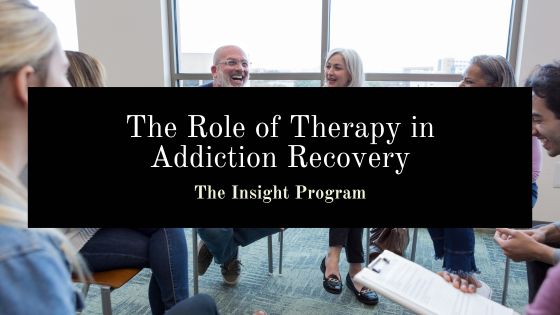Addiction is a multifaceted and complex disorder that affects millions of people worldwide. Overcoming addiction requires more than just the cessation of substance use; it involves addressing the underlying psychological, emotional, and behavioral issues that contribute to addictive behaviors. Therapy plays a crucial role in addiction recovery, offering structured support and strategies that help individuals achieve and maintain sobriety. This blog explores the various types of treatment used in addiction recovery and their importance in the healing process.
Cognitive Behavioral Therapy (CBT)
Cognitive Behavioral Therapy (CBT) is one of the most widely used therapeutic approaches in addiction treatment. CBT focuses on identifying and changing negative thought patterns and behaviors that contribute to substance use. By teaching individuals how to recognize triggers, develop coping strategies, and challenge dysfunctional beliefs, CBT empowers them to manage their addiction proactively.
Key benefits of CBT include:
- Skill Development: Individuals learn practical skills to cope with cravings and avoid relapse.
- Self-Awareness: CBT enhances self-awareness, helping individuals understand the relationship between their thoughts, feelings, and behaviors.
- Emotional Regulation: It helps manage emotions more effectively, reducing the likelihood of turning to substances for relief.
Motivational Interviewing (MI)
Motivational Interviewing (MI) is a client-centered, directive approach that enhances an individual’s motivation to change. Unlike confrontational methods, MI is based on empathy, collaboration, and respect for the individual’s autonomy. Therapists using MI help clients explore their ambivalence about substance use and strengthen their commitment to change.
The core principles of MI include:
- Expressing Empathy: Therapists create a non-judgmental and supportive environment.
- Developing Discrepancy: Clients are guided to see the gap between their current behavior and their broader goals and values.
- Supporting Self-Efficacy: MI builds confidence in the individual’s ability to change.
Family Therapy
Addiction does not only affect the individual but also their family and loved ones. Family therapy involves the participation of family members in the treatment process, addressing the dynamics and patterns that may contribute to or result from addiction. This therapy helps repair relationships, improve communication, and establish a supportive home environment conducive to recovery.
Benefits of family therapy include:
- Improved Relationships: It fosters healthier relationships and resolves conflicts within the family.
- Support System: Family members become an active support system, understanding and supporting the individual’s recovery journey.
- Education: Families gain a better understanding of addiction, reducing stigma and misconceptions.
Group Therapy
Group therapy provides a supportive environment where individuals can share their experiences, challenges, and successes with peers in recovery. Led by a trained therapist, group therapy sessions offer mutual support, feedback, and encouragement.
The advantages of group therapy are:
- Peer Support: Participants benefit from the shared experiences and insights of others facing similar challenges.
- Reduced Isolation: It combats the loneliness often associated with addiction, fostering a sense of community.
- Accountability: Group settings promote accountability and commitment to recovery goals.
Holistic Therapies
Holistic therapies address the whole person, integrating physical, mental, and spiritual well-being into the recovery process. Techniques such as mindfulness, meditation, yoga, and art therapy are increasingly being used to complement traditional treatment methods.
Key aspects of holistic therapies include:
- Stress Reduction: Techniques like meditation and yoga reduce stress and promote relaxation.
- Emotional Healing: Art therapy and other expressive therapies help individuals process and express their emotions.
- Balance: Holistic approaches promote overall balance and well-being, supporting long-term recovery.
Conclusion
Therapy is an essential component of addiction recovery, offering a range of approaches tailored to meet the diverse needs of individuals. From CBT and MI to family and group therapy, each method provides unique benefits that address the complex nature of addiction. By incorporating therapy into their recovery journey, individuals can develop the skills, insights, and support necessary to achieve lasting sobriety and improve their quality of life. Holistic therapies further enhance this process, ensuring comprehensive and sustainable recovery.

